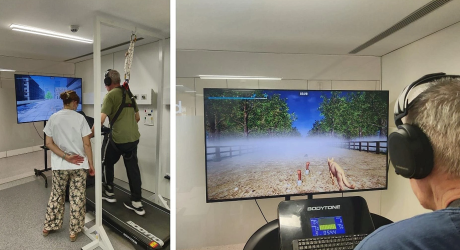The Lleida researcher Ferran Barbé, the third most influential scientist in the international community in the field of sleep apnoea
According to research that has analysed the 100 most cited articles in the medical literature
The territorial clinical director of chronic respiratory diseases at the Arnau de Vilanova University Hospital of Lleida (HUAV), professor at the Faculty of Medicine of the University of Lleida (UdL) and researcher at the Institute for Research in Biomedicine of Lleida (IRBLleida), Ferran Barbé, is the third most influential scientist in the international community in the field of sleep apnoea. This is reflected in an article in the latest issue of the journal Sleep and Breathing, in which the authors have analysed bibliometrically the 100 most cited articles in the medical literature focused on sleep and breathing.
The author with the highest number of articles is Professor David Gozal of the University of Missouri in the United States, named doctor honoris causa by the Universitat de Lleida. Second place goes to Virend Somers of the Mayo Clinic, also in the United States, and third place goes to the Lleida researcher.
Barbé is head of the Translational Research in Respiratory Medicine research group at the Institute of Biomedical Research of Lleida (IRBLleida) and scientific director of the Centre for Biomedical Research in Respiratory Diseases Network (CIBERES).
The research has included four Spanish pneumologists in the top 10 worldwide. The other three are José María Marín, pneumologist at the Miguel Servet Hospital in Zaragoza and professor at the University of Zaragoza; Joaquín Durán-Cantolla, head of research at the Bioaraba Health Research Institute in Vitoria-Gasteiz and professor at the University of the Basque Country, and Francisco José García Río, head of the pneumology section at the La Paz Hospital in Madrid and professor at the Autonomous University of Madrid.
Obstructive sleep apnoea is a respiratory disorder characterised by intermittent shortness of breath during sleep and fragmented sleep, which has been associated with increased morbidity and mortality due to its relationship with hypertension, cancer and cardiovascular disease.




